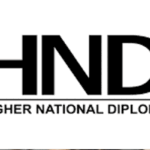Choosing the right undergraduate course is a critical choice with profound effects. For starters, it determines the course of your future career, affecting the chances of being open to you after graduation. A linked course guarantees that you are gaining relevant information and skills, enhancing your employability and professional satisfaction. Furthermore, your decision influences the personal fulfilment you receive from your education, making it critical to study a topic that interests you. Because attaining a degree entails a significant investment of time and finances, choosing the proper course is not just an issue of critical thinking but also of ensuring that your educational path is engaging and meaningful. Finally, your undergraduate course establishes a foundation for your long-term objectives, personal development, and possible contributions to society.
Self-Assessment:
Thorough self-assessment plays a pivotal role in selecting the most suitable undergraduate program. It all begins with introspection, where you reflect on your personal passions, academic strengths, and core values. This introspection should help you discover what genuinely sparks your intellectual curiosity and resonates with your principles. Additionally, it would be best to analyse your past achievements, both in academics and extracurricular pursuits, to identify areas where you excel and have a real passion. Consider your long-term career aspirations and ethical beliefs, ensuring the chosen course aligns seamlessly with your envisioned professional journey and moral compass. As you delve into your personality traits, skillsets, and aptitudes, seeking guidance from mentors and academic advisors is beneficial. Exploring career possibilities and setting well-defined educational and career goals can be valuable compass points during your decision-making process. Remember that self-assessment is an evolving journey, empowering you to make a well-informed choice that authentically reflects your unique qualities and aspirations.
Research:
Thorough research plays a pivotal role in selecting the most appropriate undergraduate course. It equips you with the knowledge to make well-informed decisions by investigating various essential elements. Research enables you to evaluate how well a particular course aligns with your academic interests and desired skill development by examining its curriculum, structure, and learning outcomes. Moreover, it facilitates an assessment of potential career paths associated with your chosen course, ensuring it leads you toward the career path you envision. Additionally, it empowers you to assess the reputation, rankings, and accreditation of universities, which can significantly impact the quality of education and the recognition of your degree in the job market. Geographic location also becomes a pivotal factor; it helps you consider aspects like climate, living costs, cultural diversity, and proximity to potential job markets or internships.
Exploring faculty expertise provides insights into the educational quality you can expect and whether faculty members align with your academic interests. Delving into student reviews and testimonials offers valuable insights into the student experience, teaching quality, and campus life. Examining alternative options and conducting a comparative analysis ensures that your chosen course harmonises seamlessly with your interests, academic and career goals, and long-term aspirations, thus paving the way for a more fulfilling and well-informed academic journey.
Set Priorities:
Setting priorities when choosing an undergraduate course is essential for aligning your education with your career aspirations and interests. By identifying your top priorities, such as specific career goals, industry preferences, or academic interests, you can optimise your educational experience and efficiently use your time and resources. Prioritising also enhances motivation and engagement, leading to academic success and job market competitiveness. Additionally, it helps you adapt to future trends, balance your needs, and wants, and reduce decision overload, ensuring that you make a well-informed and fulfilling long-term commitment to your chosen course of study.
Seek Advice:
Seeking advice when selecting an undergraduate course is crucial for making informed decisions about your education and future career. Academic advisors and career counsellors offer expert guidance, helping you explore a wide range of academic options, understand program requirements, and align your choices with your career aspirations. They can also provide insights into industry trends and job market demand, helping you choose a course that enhances your employability. Additionally, seeking advice enables you to clarify your interests, minimise common mistakes, access valuable university resources, and make a well-rounded decision that considers not only academics but also personal preferences, location, and financial considerations. Ultimately, seeking advice empowers you to confidently navigate the complex landscape of higher education and build a solid foundation for your future success.
Attend College Fairs and Open houses:
Attending college fairs before applying for an undergraduate course is highly beneficial. It allows you to explore various college options in one place, interact with college representatives to gather valuable information, ask specific questions about programs and admission, and obtain insights into the application process. These events also provide opportunities to learn about financial aid and scholarships, evaluate campus cultures, and connect with admissions personnel, alums, and fellow attendees. College fairs enable you to compare schools, build confidence in communication, and gain inspiration and motivation for higher education. Overall, they offer a comprehensive and convenient way to prepare for the college application process, ensuring you make informed decisions about your educational future.
Make a Decision:

In conclusion, choosing the right undergraduate course is a pivotal decision with significant implications for your future. It determines your career trajectory, personal fulfilment, and long-term goals. To make a well-informed choice, you should embark on a journey of self-assessment, delving deep into your passions, strengths, and values. Thorough research is equally vital, allowing you to align your academic interests and career aspirations with a course’s curriculum, reputation, and geographic location. Setting clear priorities helps you optimise your education while seeking advice from academic advisors, and attending college fairs provides valuable guidance and exposure to diverse educational opportunities. Ultimately, by carefully considering these steps, you can embark on an undergraduate journey that aligns seamlessly with your unique qualities and aspirations, ensuring a fulfilling and meaningful educational experience.
For more information on courses, click on the link below:
https://mrcollege.ac.uk/courses/










